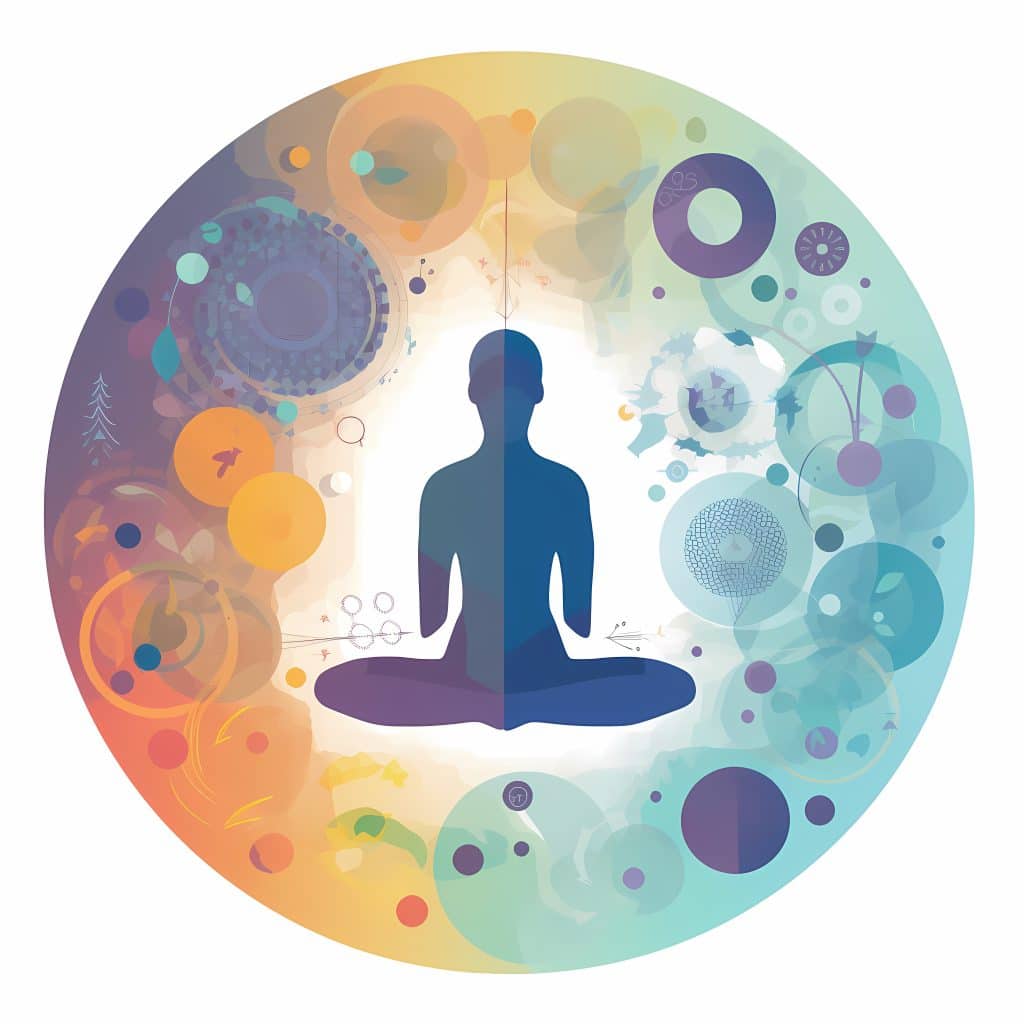In the teeming hustle and bustle of the modern world, mindfulness has become more than just a buzzword. Instead, it’s a necessary skill for maintaining balance and sanity amidst the chaos. Understanding the concept of mindfulness is the first step towards incorporating it into your life. At its core, mindfulness means entire presence and engagement. That means you turn off certain faculties and stay in the current moment without dealing with judgments or distractions.
The Science Behind Mindfulness
Mindfulness isn’t just a feel-good term. It has a profound impact on our brains. Regular mindfulness practice can lead to structural changes in the brain, including increased density in areas related to attention, emotion regulation, and self-awareness. The psychological benefits of mindfulness are equally impressive, ranging from reduced anxiety and depression to improved memory and focus.

The Role of Mindfulness in Stress Management
In our fast-paced world, stress is a constant companion. Mindfulness is a robust tool helping to reduce stress and its harmful effects. For example, people avoid overthinking worries about the future or regrets about the past by focusing only on the present moment. Moreover, mindfulness helps us navigate chaos by promoting a sense of calm and clarity, even amid the turmoil.
Practical Mindfulness Techniques
Devoted people can easily incorporate several practical mindfulness techniques into their daily routines. Mindful breathing, for instance, is a simple yet effective technique that people can practice anytime, anywhere. The body scan is another technique that involves paying attention to different body parts and observing sensations without judgment. Mindful eating and walking meditation are other techniques that combine everyday activities with mindfulness practice, making it easier to stay present amidst the chaos.
Mindfulness and Relationships
Mindfulness can also play a crucial role in improving our relationships. It also helps us connect with people more deeply by promoting active listening and open communication. Furthermore, mindfulness cultivates empathy and understanding, enabling us to see things from others’ perspectives and respond compassionately.
Mindfulness in the Workplace
In the workplace, mindfulness can boost productivity and job satisfaction. By helping us stay focused and attentive, mindfulness can enhance our performance and reduce the likelihood of errors. Simple mindfulness exercises can also be done right at your desk, such as breathing or taking a conscious break to stretch and relax.
Overcoming Challenges in Practicing Mindfulness
Like any new skill, practicing mindfulness can come with its own set of challenges. Common misconceptions about mindfulness can create unnecessary hurdles. For instance, mindfulness is not about emptying the mind or achieving a state of eternal calm. It’s about paying attention right now with openness and curiosity. Dealing with distractions is another common challenge in mindfulness practice. The key is acknowledging distractions without getting hooked and gently returning your attention to the present moment.
Maintaining a Regular Mindfulness Practice
Creating a mindfulness routine that works for you is crucial for regular practice. Such a plan could involve setting aside a specific time each day for mindfulness practice or incorporating mindfulness into daily activities like eating, walking, or commuting. Consistency is critical in mindfulness practice; even a few minutes each morning or night will make a big difference. Developing mindfulness in the modern world takes discipline and commitment.
Commit to Practice
The journey of mindfulness is a lifelong practice, not a destination. It’s about embracing each moment with all its imperfections and uncertainties. By practicing mindfulness, we can cultivate a sense of balance and peace in our chaotic world and live our lives with more significant presence, compassion, and joy.
Updated 1/22/2024





